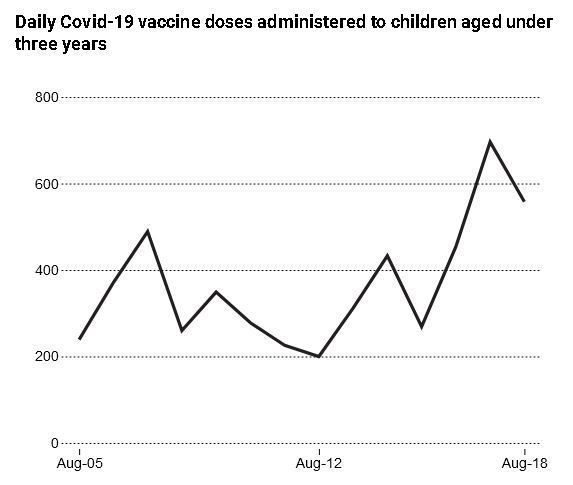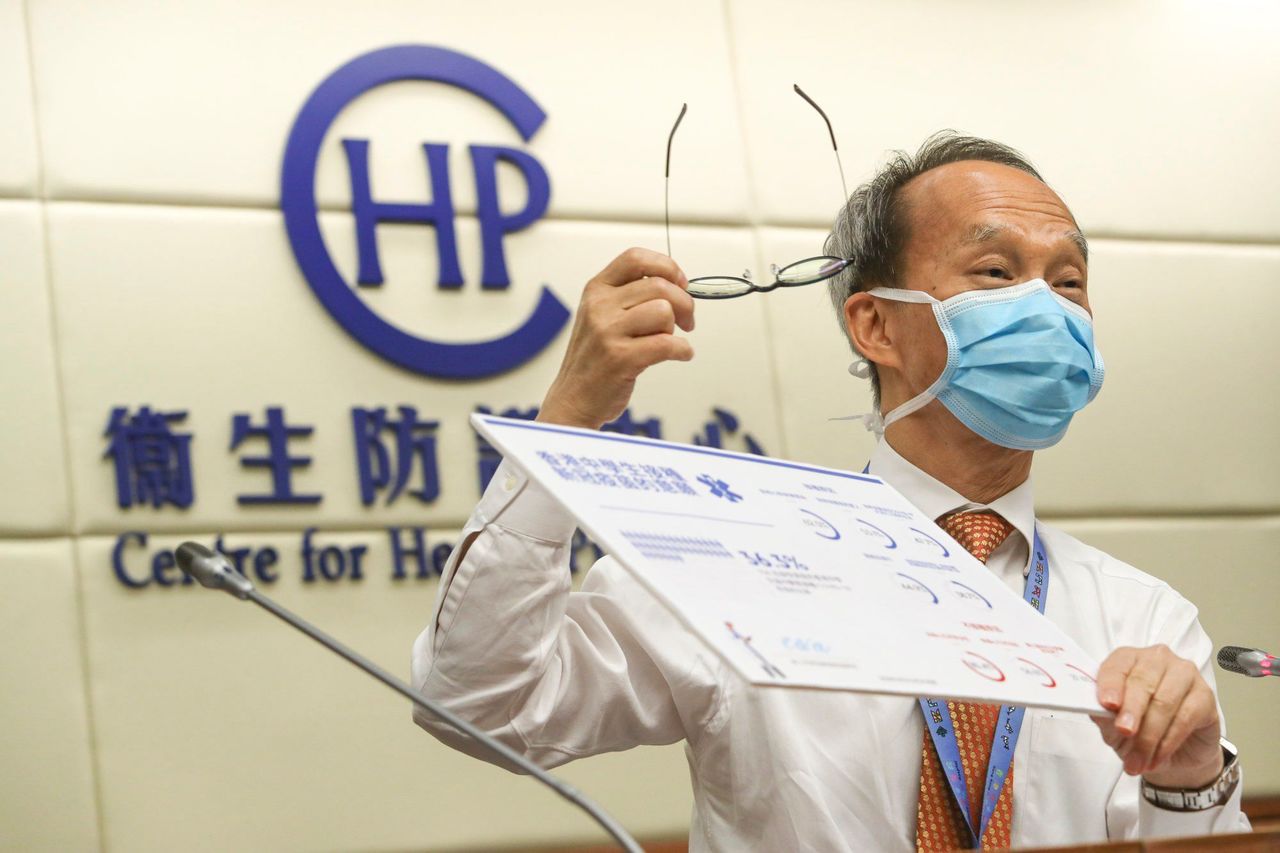Hong Kong News

Hong Kong logs over 6,400 Covid cases as number of youngsters getting jabs rises
Hong Kong’s daily coronavirus infection toll has jumped to more than 6,400 as the government announced it would reopen a treatment centre for Covid-19 patients at AsiaWorld-Expo next week amid rising numbers of cases.
The city logged 6,445 coronavirus infections on Friday, the highest daily number since the end of March, including 185 cases from abroad, as well as eight more deaths.
It was the second day in a row that the city’s infections passed the 6,000 mark. On Thursday, the city recorded 6,054 cases.
The government said it would enter a new phase-three response plan, which would double the hospital beds designated for Covid-19 patients to 5,000, in response to the latest figures.
The Kai Tak community isolation centre with 2,700 units also started operations on Friday, with about 60 Covid-19 patients admitted by 6pm.
The plan also includes the reopening of a treatment centre for Covid-19 patients at the AsiaWorld-Expo next week, which will provide an extra 200 beds.
Dr Albert Au Ka-wing of the Centre for Health Protection said the rise in coronavirus patients was because of an increase in the proportion of cases involving the more transmittable Omicron subvariants BA. 4 and BA. 5, which were responsible for almost a third of Friday’s infections.
“The increase in infections mainly stems from local cases … We can see that number has increased at a faster pace in the past few days,” he said.
Au added that 112 residents at a care home for the elderly in Tsing Yi needed to be evacuated after five staff members and 12 residents tested positive, reminiscent of some of the worst incidents in the fifth wave earlier this year, when care homes were hit hard.
Dr Lau Ka-hin, a chief manager at the Hospital Authority, revealed there were 1,898 patients hospitalised for Covid-19, including 258 new admissions, with 36 of them in “critical” condition and 25 “serious”.
He said about 500 Covid-19 patients were in isolation wards, which also accepted patients who had contracted other transmittable diseases. About 60 to 70 per cent of about 1,200 isolation beds in public hospitals are occupied at present.
“The occupancy rate could not reach 100 per cent as we need vacant beds for turnover. This is an alarm alerting us that our supply of beds was tight,” he said. “We believe that it’s now a very critical moment … We need to prepare for the worst and do the best preparation we can.”
Lau said about 100 doctors, nurses and other healthcare staff would be deployed to the AsiaWorld-Expo treatment centre.
The news came as the number of vaccinations administered to children aged six months to three years jumped from 239 on August 4, the first day of a drive to get youngsters jabbed, to highs of 696 and 558 on Wednesday and Thursday, according to a Post analysis of figures provided by health authorities.

Some parents brought their children to a sports centre at North Point for the vaccination, including a 33-year-old clerk surnamed Yeung, who took a day off to bring her two-year-old to daughter get the first jab to “fulfil the requirements for school”.
“I need to work and my child must be taken care of. The pre-nursery class requires children to get at least one dose of vaccination,” she explained. “I would not let her get vaccinated if it was not for school.”
A full-time mother surnamed Chan, in her 30s, also brought her two-year-old girl to get the first jab after the child was infected with the coronavirus in late July. The toddler suffered from severe headaches and shortness of breath.
“Compared to the side effects after vaccination, I am more worried about the discomfort she would suffer if she contracts the virus again,” she said.
Only the Chinese-made Sinovac vaccine is available for use for the age group at present as the government is still negotiating with BioNTech for its vaccine for young children.
Some other parents, however, questioned the safety of the vaccine and said they dared not take the risk.
Liu, a 41-year-old full-time mother, said that she would not get her two-year-old vaccinated as she did not want the child to be “injected with unregistered substances”.
Her son was infected with Covid-19 in May, but only suffered minor symptoms such as a blocked nose and mild fever and recovered quickly.
Liu said she believed that a strong immune system would be sufficient to fight against the virus.
Government pandemic adviser Professor Lau Yu-lung, the chair professor of paediatrics at the University of Hong Kong (HKU), said two recent cases involving infected children, including a 27-month-old boy suffering from croup, characterised by an obstruction of the airways caused by a viral infection, had shown how alarming the situation was.
“Of course, the two recent severe cases let parents understand that the final result could be worrying if they do not get their children vaccinated … I believe they would agree children aged under three should be vaccinated,” he said.
 Professor Lau Yu-lung.
Professor Lau Yu-lung.
Lau also said some parents’ concerns over inoculating their children had been allayed after paediatricians and family doctors weighed in on the benefits and risks, leading to a steady rise in vaccinations among youngsters.
Ideally, about 600 to 800 young children should be vaccinated every day, he said, adding he hoped to see the number go up to 1,000 a day.
As of Friday, 6.19 per cent of residents in this age group, or 6,439 children, had been given Covid-19 jabs.
The government on Friday said that civil servants could get up to a half-day’s leave to take their children younger than three for vaccination from Monday. The incentive was designed to encourage parents to make sure their children were protected. The authorities also appealed to companies in the city to introduce family-friendly measures to encourage vaccination.
Lau appealed to parents not to wait for the BioNTech vaccine as Sinovac jabs were also safe for children. He hoped at least 50 to 60 per cent of the children would be inoculated before winter arrived.
In the past two weeks, a 27-month-old boy and a five-year-old girl, who were both unvaccinated, ended up in intensive care after they came down with the virus. Health authorities said the five-year-old had suffered encephalitis – inflammation of the brain.
The overall tally stands at 1,445,336 coronavirus cases and 9,597 related fatalities.











